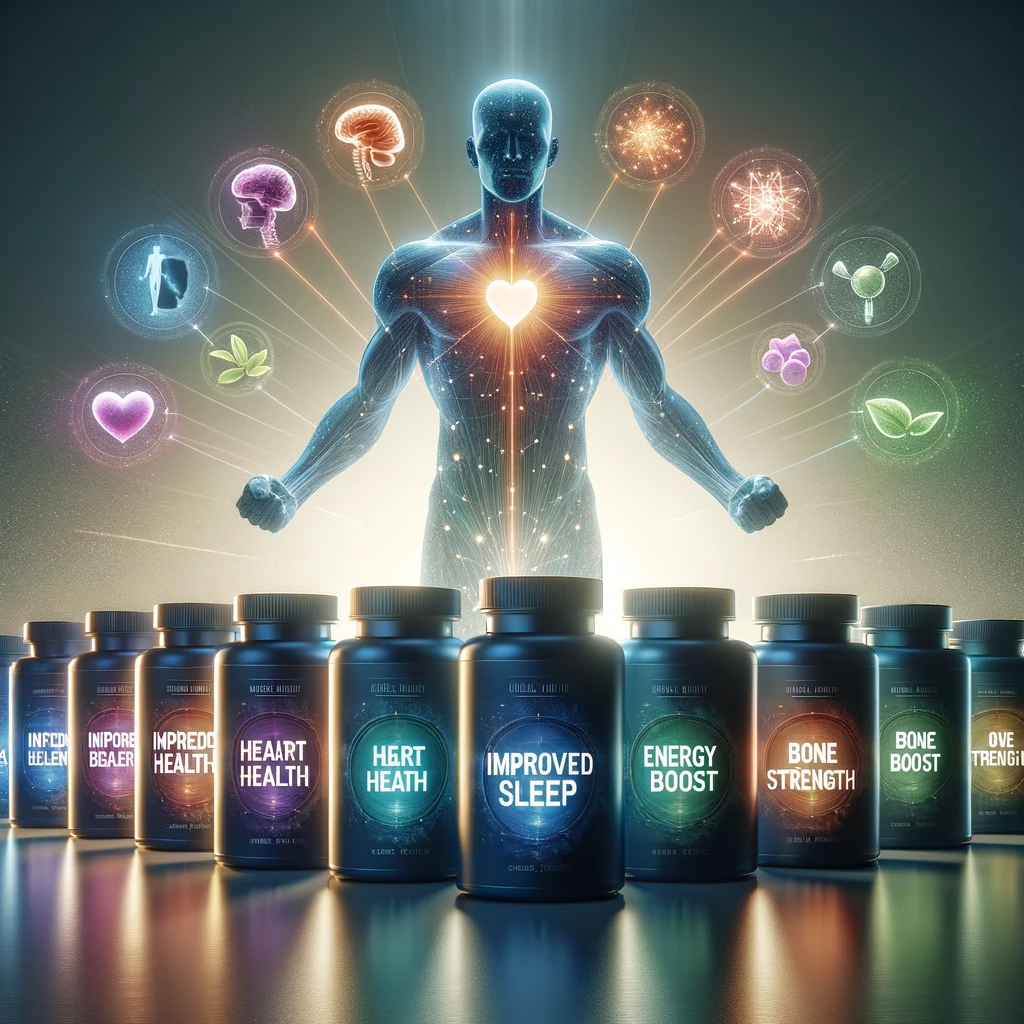In an era where personalized services are becoming the norm, from tailored playlists to custom fitness programs, it’s no surprise that personalized vitamins are swiftly gaining popularity. This bespoke approach to supplementation promises to cater to individual health needs with unprecedented precision.
The Shortcomings of One-Size-Fits-All
“For too long, we’ve been operating under the assumption that what’s good for one is good for all,” says Dr. Angela Fitch, a board-certified physician in obesity medicine. “But when it comes to nutrition, the one-size-fits-all approach is fundamentally flawed.” This sentiment is echoed throughout the health community, as the limitations of standard multivitamins become increasingly apparent.
Standard multivitamins can’t account for the unique dietary needs, deficiencies, and health goals of every individual. “We’re seeing people either getting too little of what they need or too much of what they don’t,” notes Dr. Fitch.
The Rise of Personalization
Enter personalized vitamins: the antithesis to the off-the-shelf multivitamin. Companies offering these tailored solutions often start with assessments ranging from questionnaires to blood tests. “The aim is to create a nutritional supplement regimen that’s as unique as the individual taking it,” explains Dr. Jonathan B. Levine, a nutritionist and health entrepreneur.
These bespoke supplements can address specific health concerns, from improving sleep quality to enhancing athletic performance. “By tailoring the supplements to the individual, we’re not just hoping for the best; we’re actively targeting areas of need,” Dr. Levine adds.
Absorption and Efficacy
Not only does personalization ensure that individuals get the right nutrients, but it also addresses the issue of absorption. “Bioavailability varies from person to person,” states Dr. Rachel Carlton Abrams, a pioneer in integrative medicine. “Personalized vitamins can be formulated in ways that align with the individual’s ability to absorb and utilize them effectively.”
This means that the delivery method—whether it’s a capsule, liquid, or powder—can be optimized for each person. “It’s not just what you take; it’s what you absorb,” Dr. Abrams reminds us.
The Role of Technology
Technology plays a pivotal role in this health revolution. With advanced algorithms and data analysis, companies can determine the most effective combination of vitamins and minerals for each person. “The integration of technology in health assessment allows us to analyze hundreds of data points to create a truly personalized product,” says Dr. Harriet Hall, a tech-savvy nutritionist.
The Evidence Base
Critics might argue that the concept sounds promising but lacks scientific backing. Yet, studies are beginning to support the efficacy of personalized nutrition. A study by the National Institutes of Health on precision nutrition points to genetic differences that affect nutrient absorption and metabolism, underscoring the need for personalized supplementation.
Beyond Deficiencies
But personalized vitamins go beyond correcting deficiencies; they’re about optimization. “We’re working with people who are already healthy and looking to take their well-being to the next level,” shares Dr. Ian Smith, a specialist in performance nutrition. “With personalized vitamins, we can support that journey.”
A Preventative Approach
Dr. Fitch sees personalized vitamins as a form of preventative medicine. “By addressing imbalances before they become problems, we’re practicing a more proactive form of healthcare,” she says.
Accessibility and Convenience
Another key factor in the rise of personalized vitamins is convenience. With subscriptions and direct delivery, maintaining a customized vitamin regimen has never been easier. “People are looking for health solutions that fit into their busy lives,” observes Dr. Levine. “Personalized vitamin subscriptions check that box.”
The Cost Factor
The cost of personalized vitamins is often higher than standard multivitamins. However, proponents argue that the benefits outweigh the costs. “You’re not wasting money on nutrients you don’t need,” Dr. Hall points out. “Every cent goes towards something your body actually requires.”
Environmental Impact
Personalized vitamins can also be more sustainable. By eliminating unnecessary ingredients, companies reduce waste and ensure a more eco-friendly product. “Sustainability is a priority for many consumers today, and personalized vitamins align with that value,” says Dr. Smith.
The Future of Personalized Health
As the personalized vitamin industry continues to grow, it will likely spur further innovations in health and wellness. Dr. Abrams believes this is just the beginning: “We’re moving towards a future where every aspect of health can be tailored to the individual. Personalized vitamins are a significant step in that direction.”
In Conclusion
The shift towards personalized vitamins represents a broader movement towards individualized health solutions. With the support of professionals across various fields, this approach to supplementation is poised to redefine how we think about vitamins and, more broadly, about our health.
By embracing the complexity of individual needs, personalized vitamins offer a promising path to not just better health, but to a deeper understanding of the unique ways our bodies function. The message is clear: when it comes to health, personalization is not just beneficial—it’s essential.






